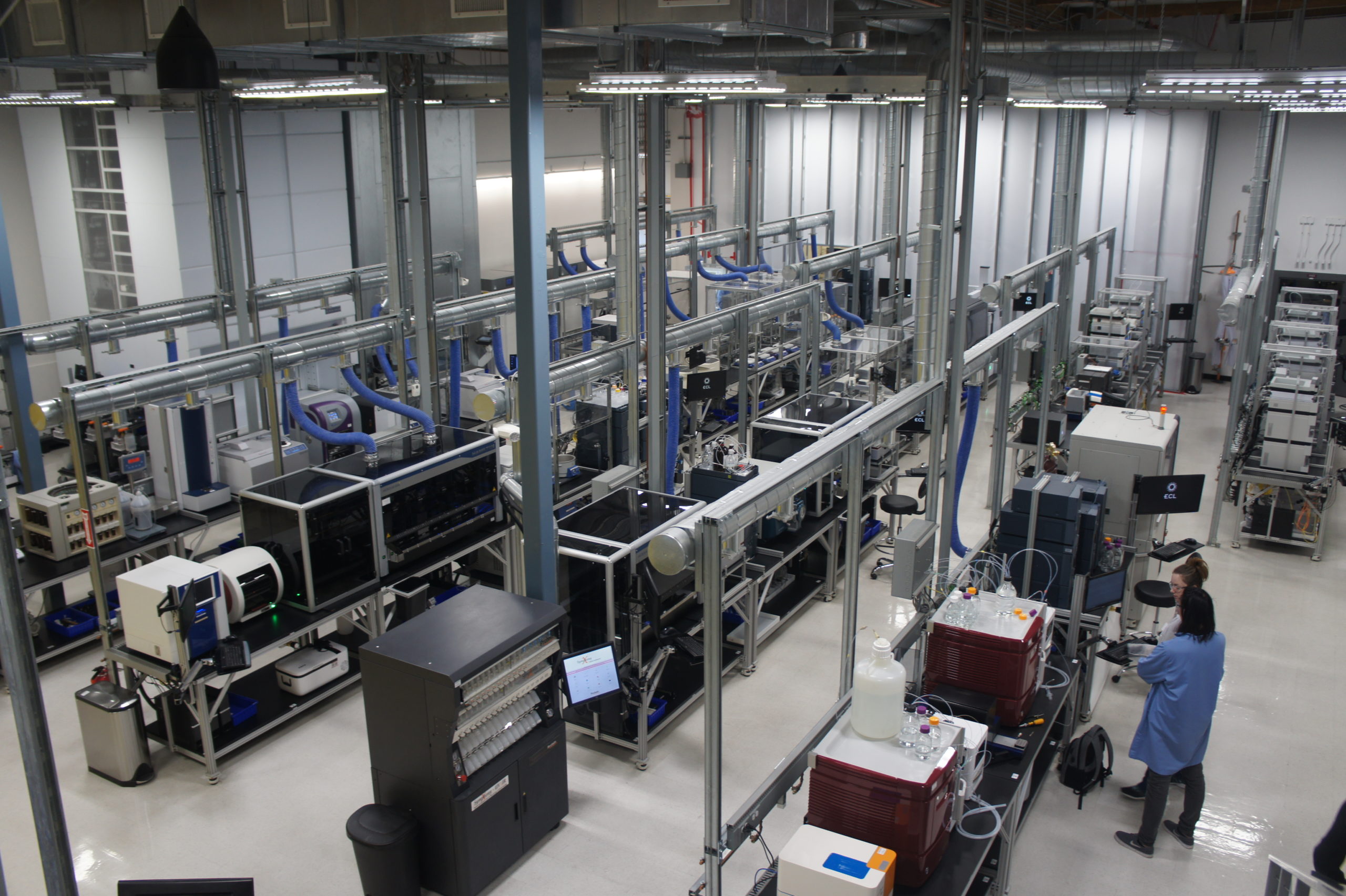MCS STUDENTS LEARN TO USE AUTOMATED SCIENCE REMOTELY
by Ben Panko

After the onset of the COVID-19 pandemic forced Mellon College of Science researchers out of their labs, a group of undergraduate students took the opportunity to learn about the burgeoning field of automated science with the help of the innovative Emerald Cloud Lab (ECL).
“The loss of in-person training has been a blow to undergraduate research experiences, which are a key part of the undergraduate education in the basic sciences,” said Professor of Biological Sciences and Chemistry Marcel Bruchez, who taught the class. “I viewed this as an opportunity to bring research back to shuttered labs, and as a way to increase the number of people at CMU who are able to control experiments in the cloud lab environment.”
A cloud lab allows researchers to program and run experiments in a fully equipped, state-of-the-art, highly automated laboratory from a computer anywhere in the world. Students in the class used time and infrastructure graciously donated by the Emerald Cloud Lab, a company founded and led by Biological Sciences’ alumni Brian Frezza and D.J. Kleinbaum.
Students spent six weeks studying the interactions between small-molecule dyes and proteins as model ligand-receptor interactions. This area of research underpins many pharmaceutical and biomedical research objectives and is potentially related to biotechnology and biofuels.
“I believe that the work Emerald Cloud Lab is doing is the future, and I think it’s vital to start developing the skills to work with remote laboratories,” computational biology senior Stephen Price said of why he took the course. Price is hoping to get more involved with other Carnegie Mellon University researchers who work with the ECL during this academic year.
“I think the training in the course has opened up a lot of possibilities and encouraged me to think big,” biological sciences Ph.D. candidate Zhipeng Yang said. Yang has been using the ECL to automate biochemical measurements of a library of proteins in her research lab and is planning many cloud lab-based experiments. “I guess the idea of scaling up and automating research will always be part of my way of thinking from now on.”
“One of the most surprising and fun aspects of the course was the practical introduction it provided to concepts of ‘open science,’” Bruchez said, since every student had access to the data and supplies and protocol used by their classmates and instructors. “This allowed us to design lab exercises that compared data across different experiments and gave students a real introduction to how easily reproducible experiments can be when they are enabled by the detailed protocol programming and rigor inherent in the cloud lab environment.”
While this specific course will likely not be offered again, Bruchez and his colleagues are working to integrate the concepts from it into routine coursework in MCS, especially as researchers continue to deal with pandemic-related disruptions.
“This approach can provide real-lab experiences in setting up experiments and collecting and interpreting data when the hands are prevented from accessing the lab directly,” Bruchez said.